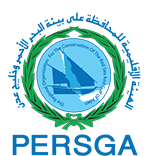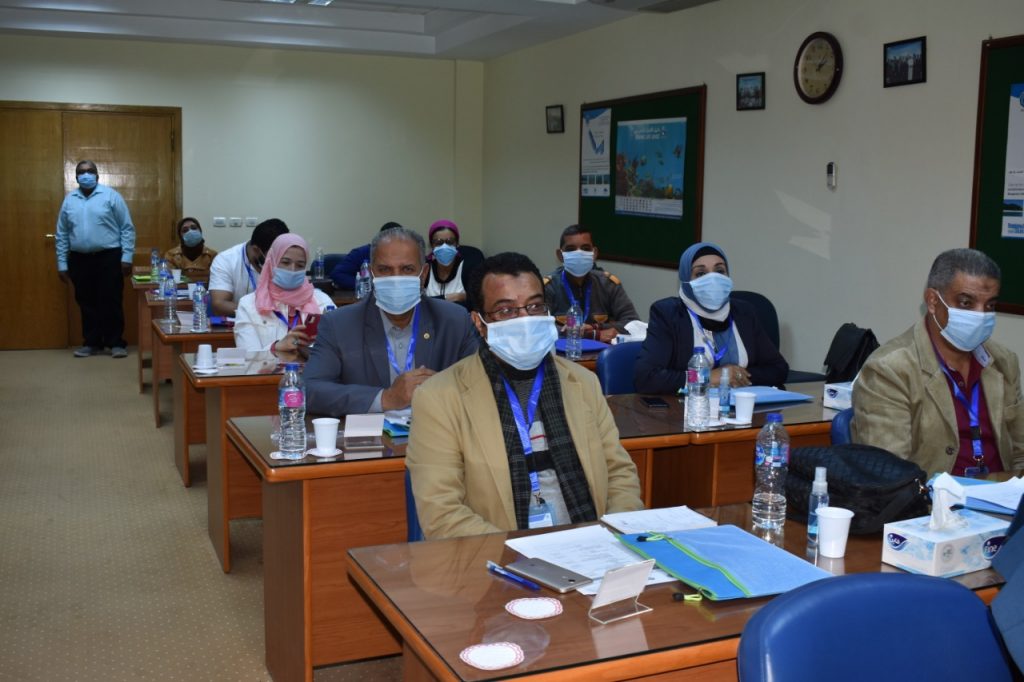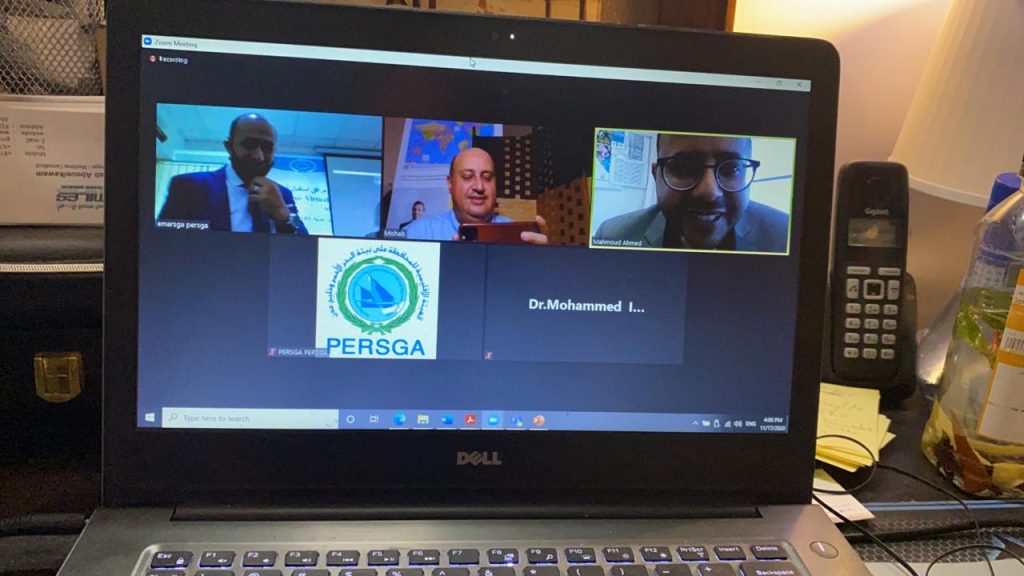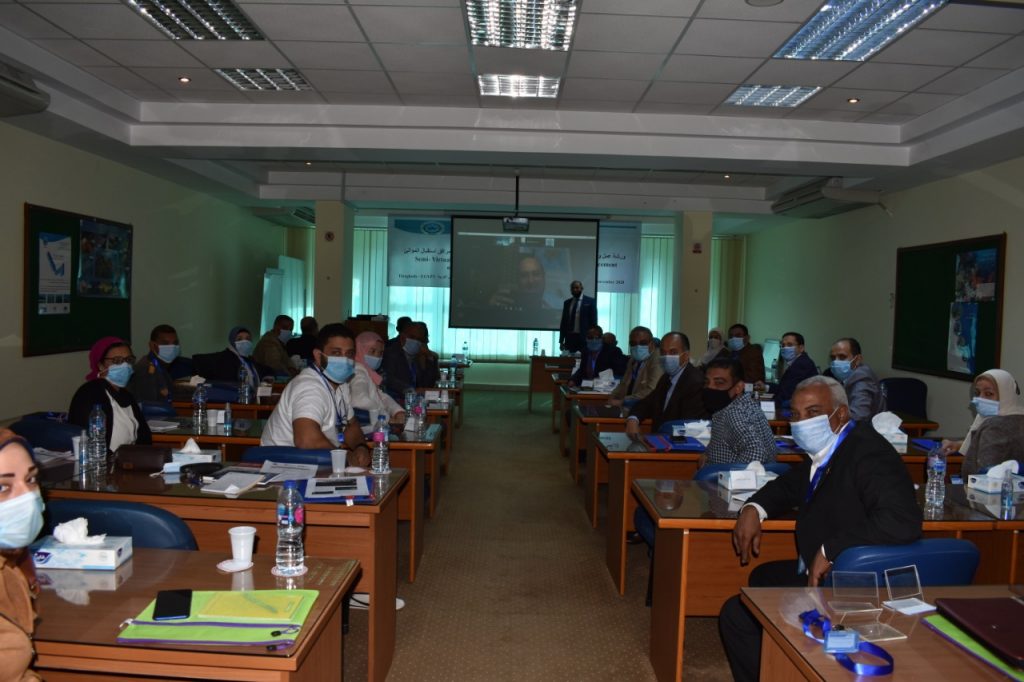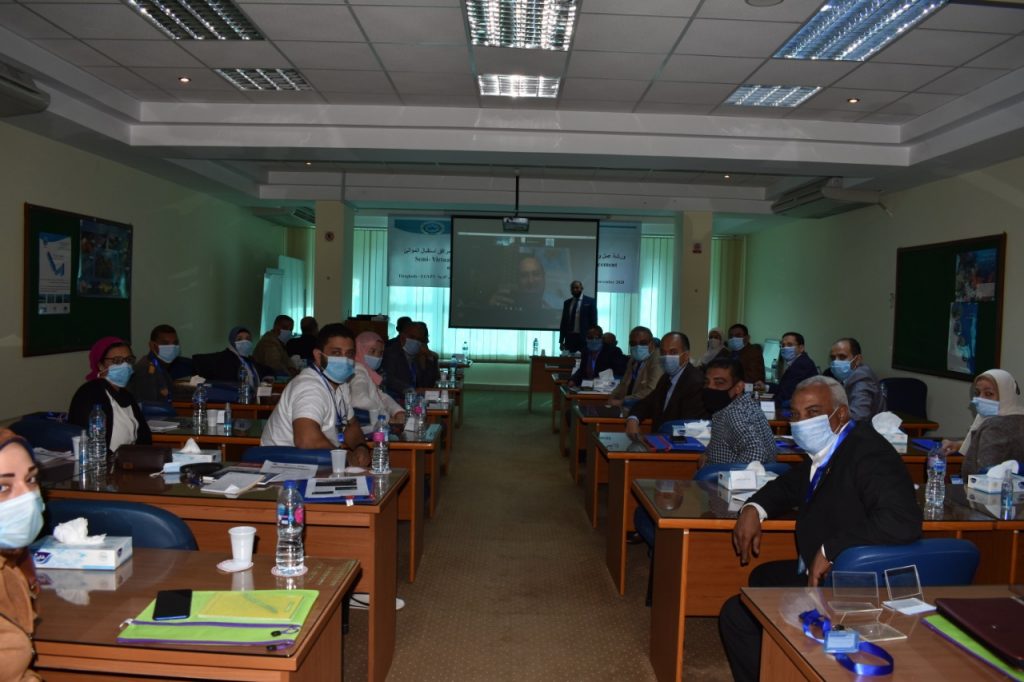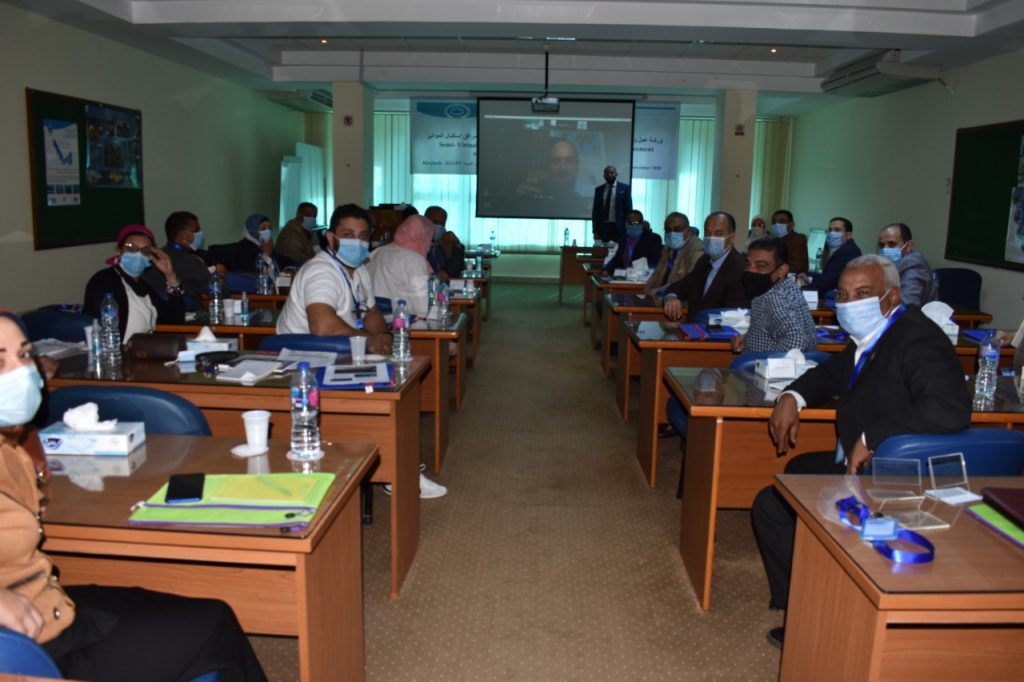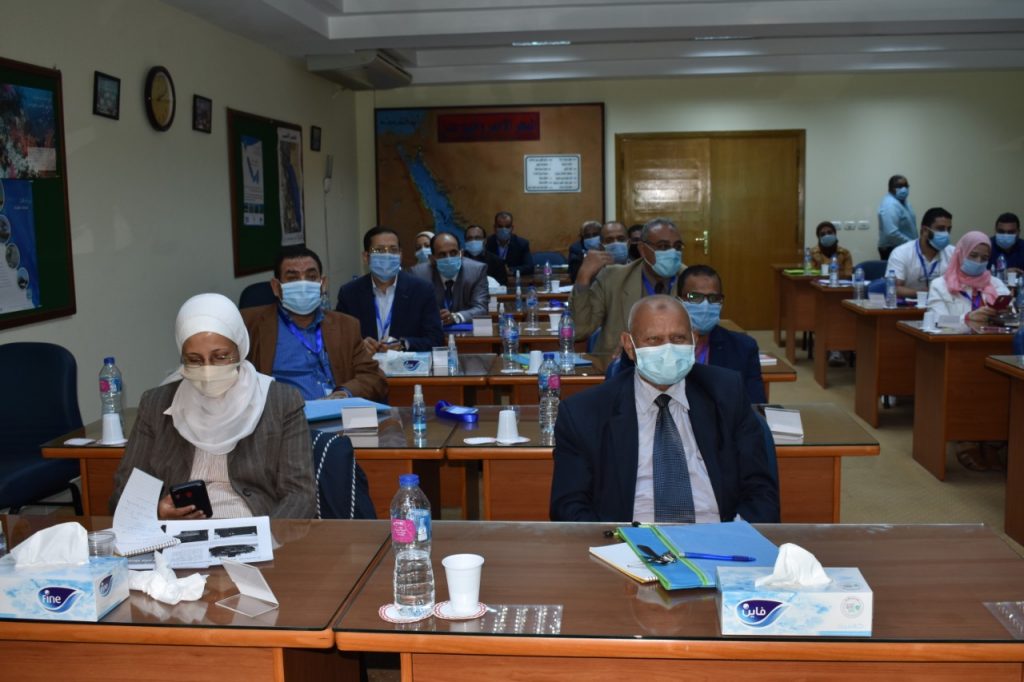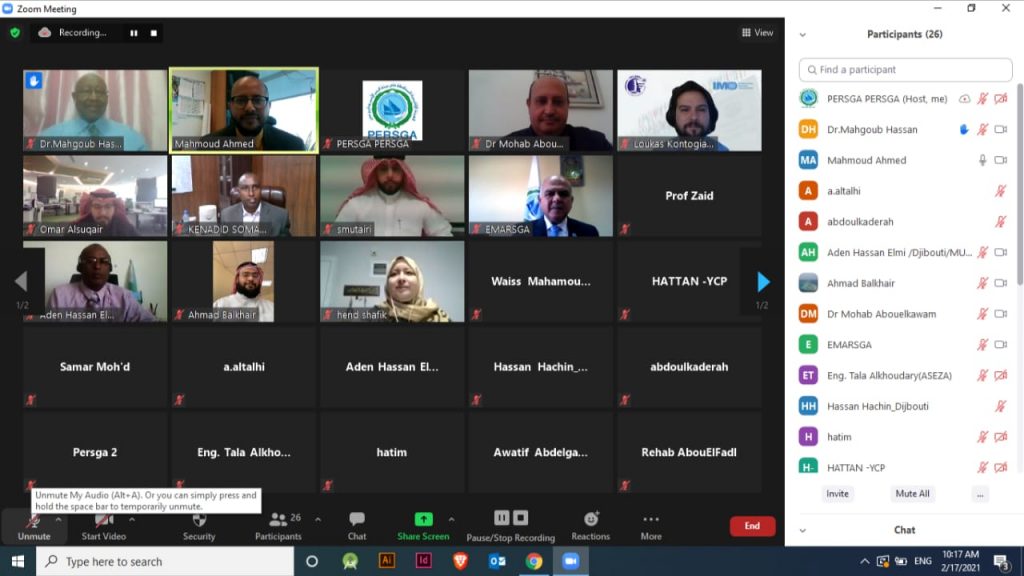Within the framework of Integrated Technical Co-operation Programme (ITCP) of IMO, there was a proposal to conduct a mission on implementation and enforcement of MARPOL Annex V and port reception facilities in Egypt. The aim of that mission was the delivery of a semi-virtual (hybrid event) national workshop on the revised MARPOL Annex V which entered into force on 1 March 2018. As an effect of the revision of MARPOL Annex V, it is important to also pay attention to the significant consequences for port reception facilities.
On that regard, the Regional Organization for the Conservation of the Environment of the Red Sea and Gulf of Aden (PERSGA) in cooperation with the International Maritime Organization (IMO) and Egyptian Environmental Affairs Agency (EEAA) has organized a three day semi-virtual National Workshop on the implementation and Enforcement of MARPOL Annex V and Port Reception Facilities. This hybrid (partially by teleconferencing) event took place in the premises of the Emergency Mutual Aid Center (EMARSGA) in Hurghada – Arab Republic of Egypt during the period Tuesday the 17th of November 2020 until Thursday the 19th of November 2020,
The Workshop started with an opening speech from Helen Buni (Technical Officer-IMO) highlighting the importance of a global partnership in preventing and combating the dumping of litter and garbage at sea which is one of the core topics discussed during the WS. Dr Mahmoud Ahmed representing PERSGA followed with his opening remarks setting up a future vision for the Red sea and Gulf of Aden region to comply actively with the MARPOL convention with a road map to making the RSGA region an effective special area.
The Workshop was intended for representatives from Government agencies responsible for the implementation and enforcement of MARPOL Annex V and port reception facilities (PRFs), with a view to enhance the knowledge and competence of participants on ship’s waste management and its link with marine litter, leading towards the effective implementation of MARPOL Annex V and PRFs in Egypt. The workshop was conducted by an IMO consultant Captain Dr Mohab Abou El Kawam covering aspects of MARPOL annex V and port reception facilities. The workshop was coordinated by the Egyptian Environmental Affairs Agency (EEEA) and the Regional Organization for the Conservation of the Environment of the Red Sea and Gulf of Aden, PERSGA and organized by the latter. The workshop was conducted within the premises of the EMARSGA centre at Hurghada, Egypt.
The aim of the course was to enable the selected participants and also the other interested stakeholders to effectively implement and enforce the revised MARPOL Annex V and to be aware of the necessary availability of adequate port reception facilities, thereby carrying out their functions in accordance with the provisions of the MARPOL Convention.
During the workshop lectures were given on the sources and impact of Garbage from shipping activities (including international policy response and remedial measures), the MARPOL Convention in general and MARPOL Annex V in particular, with emphasis on not only rights but also on obligations under the Convention for Egypt as a flag State, port State and coastal State. This part was followed by lectures on the provision of Port Reception Facilities for different types of ports, the IMO publication “Port Reception Facilities – How to do it”, the Global Integrated Shipping Information System (GISIS). Port reception facilities received attention from different angles such as ways to assess the possible need for port reception facilities, the issue of adequacy of port reception facilities for different types of ports, the application of fee systems and waste management planning.
The second day of the workshop gave the chance to the host country and the EEAA to present their activities and measures taken to date to comply with MARPOL. The Day continues with presentation of three case studies for the attention of PSCOs with the aim of encouraging the knowledge based and technical skills for this vital sector to conduct environmental inspections relating to MARPOL compliance.
At the end of the workshop, evaluation forms were completed by the participants and subsequently analyzed. The evaluation results show a high level of satisfaction by the participants with the way the workshop was organized and conducted, the venue and with the performance of the facilitators. Overall, the workshop was completed successfully.
